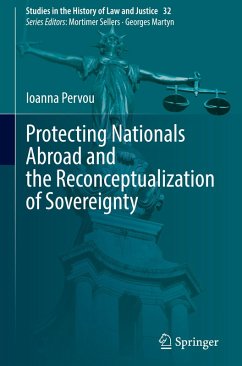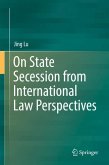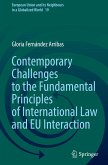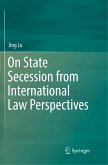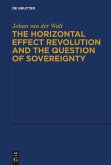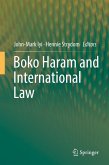This book helps to conceptualize the doctrine of forcible protection of nationals abroad and illustrates the key elements of state practice. States interest in protecting their nationals abroad is timeless; nationality and allegiance are constitutive elements of sovereignty and in some cases, take precedence over territoriality. Yet the forcible protection of nationals abroad has long been debated and attracted the attention of international legal theory. Currently, it is particularly in the spotlight due to Russia s invocation of the doctrine in the armed conflict against Ukraine. However, protection of nationals abroad is a concept which is expected to fuel international debate in the years to come, primarily because of globalization and the growing trend of more and more people living outside their country of birth.
Chapters 1 and 2 delve into the doctrine of protecting nationals abroad. More specifically, Chapter 1 examines how the doctrine was formulated and applied in the pre-Charter era and explores whether there was a customary rule permitting the use of force to protect a state s nationals abroad, while Chapter 2 offers an overview of the doctrinal debate which followed the United Nations Charter and the prohibition of the use of force. In turn, Chapters 3 and 4 take a closer look at state practice from 1945 onwards. Chapter 3 outlines the major features of states practices and their justifications for using force for the sake of their nationals. Chapter 4 assesses the Russian discourse on the protection of nationals abroad, specifically with regard to the armed conflict with Georgia, the rhetoric preceding the annexation of Crimea, and the military invasion of Ukraine. Lastly, Chapter 5 explains how the protection of nationals abroad could be made more human-centric and go beyond jus ad bellum. This chapter re-interprets the concept of nationals and sheds light on the terms expatriates, naturalized foreigners and diaspora, suggesting that there is a gap between diplomatic and forcible protection, one not reflected in international law regulation and which needs to be addressed.
Chapters 1 and 2 delve into the doctrine of protecting nationals abroad. More specifically, Chapter 1 examines how the doctrine was formulated and applied in the pre-Charter era and explores whether there was a customary rule permitting the use of force to protect a state s nationals abroad, while Chapter 2 offers an overview of the doctrinal debate which followed the United Nations Charter and the prohibition of the use of force. In turn, Chapters 3 and 4 take a closer look at state practice from 1945 onwards. Chapter 3 outlines the major features of states practices and their justifications for using force for the sake of their nationals. Chapter 4 assesses the Russian discourse on the protection of nationals abroad, specifically with regard to the armed conflict with Georgia, the rhetoric preceding the annexation of Crimea, and the military invasion of Ukraine. Lastly, Chapter 5 explains how the protection of nationals abroad could be made more human-centric and go beyond jus ad bellum. This chapter re-interprets the concept of nationals and sheds light on the terms expatriates, naturalized foreigners and diaspora, suggesting that there is a gap between diplomatic and forcible protection, one not reflected in international law regulation and which needs to be addressed.

